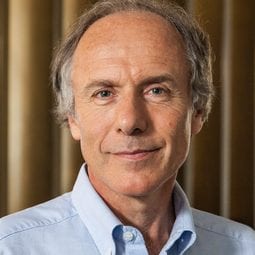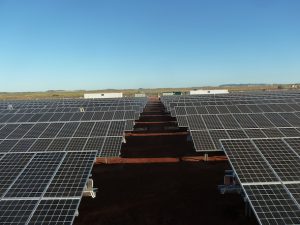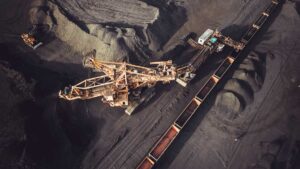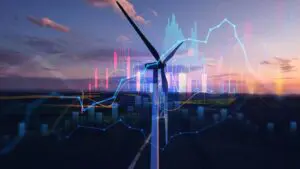Australia’s new chief scientist, Dr Alan Finkel, drives a renewable-powered Nissan Leaf electric car and says wind, solar and storage could power all of Australia. But he is also a supporter of debate about the potential of nuclear power.
 Finkel’s appointment was formally announced on Tuesday by prime minister Malcolm Turnbull. He replaces Professor Ian Chubb.
Finkel’s appointment was formally announced on Tuesday by prime minister Malcolm Turnbull. He replaces Professor Ian Chubb.
Finkel is an electrical engineer, neuroscientist and the publisher of COSMOS magazine. He has been chancellor of Monash University since 2008 and was also chief technology officer for the failed EV network provider Better Place Australia.
The new chief scientist is in no doubt where the energy system is heading, and should be an eloquent speaker on the major technology trends and their impact.
“The energy revolution has begun,” he wrote in a recent article on Cosmos. “Almost daily reports trumpet price breakthroughs in solar and wind electricity while fossil-fuel generation facilities are disparaged as stranded assets.”
He went on to say that the key will be in energy storage, both small-scale and large-scale – batteries and pumped hydro, as well as hydrogen (electric and compressed air), among other options. He hailed the push into battery storage by Tesla, and others such as Mercedes, along with LG, Samsung, Panasonic and Toshiba.
In another article, Finkel talks of the “electric planet”, underlining his views that the only way to reduce emissions is to switch to electric transport and focus on clean sources of electricity to replace fossil fuels. He dismisses the so-called “hydrogen economy.”
“Conversion to the Electric Planet need not be traumatic, either, as it is little more than an extension of what we already know, building on the existing transmission and distribution systems,” Finkel writes.
“If the shift were not rushed, it would not be significantly more costly than business-as-usual nor compromise our high living standards.
“Coal-fired electricity generators can be closed down and replaced with clean alternatives as they reach the end of their design life; electric cars can replace internal combustion engine cars as consumers upgrade their vehicles.”
Finkel also talks of nuclear, but he is under no illusions as to its limitations – being both slow to build and expensive, and not able to provide a short-term solution.
“Nuclear can generate massive quantities of clean electricity but it will not make a contribution above its current levels in the next 30 years because of rising construction costs, licensing delays, politics, proliferation, waste management and safety concerns, and the long design cycle,” Finkel wrote.
“If these problems can be overcome, nuclear will make a hugely important contribution in the second half of the century.”
That shows that Finkel can bring a dose of reality to the nuclear debate. The pro-nuclear lobby is largely populated by those who either do not accept climate science, wish to retain the old centralised model of electricity generation, or who are trying to limit the proliferation of renewable energy in the near term.
As Finkel says: “With enough storage we could do it in this country with solar and wind.” That is something that most pro-nuclear advocates refuse to accept. Finkel appears to have an understanding of the benefits and potential of renewable energy, and the potential and limitations of nuclear.
Finkel’s efforts at creating a renewable-energy powered EV charging network with Better Place came to a premature end. But he still loves his EV and also wrote an interesting piece on why it is “green” rather than black.
That’s because he buys 100 per cent renewable energy for his household, where he charges his Nissan Leaf.
“There’s no doubt in my mind that electric cars are the transport technology of the future,” Finkel writes. “One day, everyone’s driving could be close to emissions-free, like mine is. The more of us who buy electric cars and power them with green electricity the faster that day will come.”
Finkel says it is not conceivable that any “fossil fuel” alternatives such as diesel, petrol, or gas could achieve emissions as low as electric vehicles charged by renewable electricity.
“There are other reasons to drive electric cars. First and foremost, the driving experience is superb. Electric cars are more responsive to the throttle, providing a vigorous feel that has to be experienced to be believed.
“And at least in our electric car, because of the mass of the battery down low, the car drives with the surety and smoothness typical of a heavy limousine. Another advantage is that charging the car at home every few nights is more convenient and uses less of my time than a weekly trip to the petrol station.”








